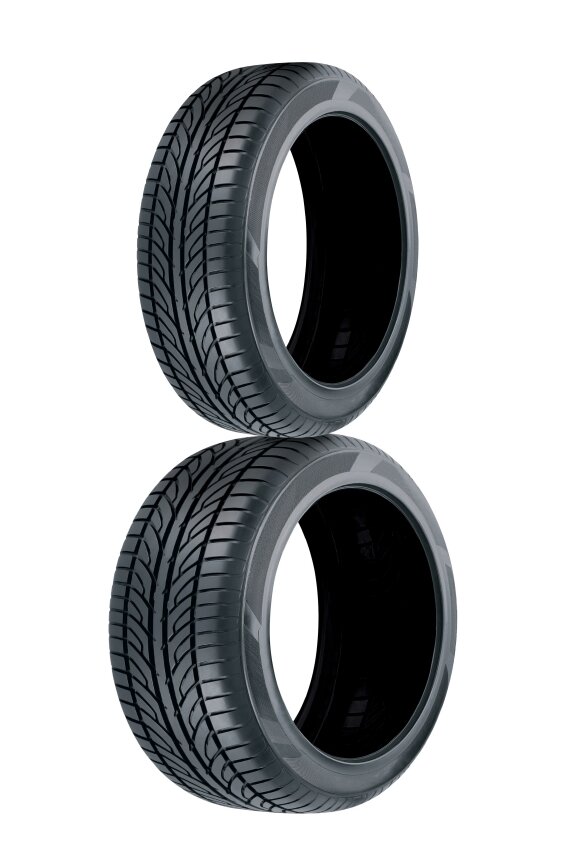
China-U.S. Trade Law
Consultations To Settle The Tires Dispute: Too Little Too Late? 轮胎案磋商:太迟了、还不足?
中文请点击这里

The safeguard law provides for consultations intended to lead to settlements of disputes arising under Section 421. It also specifies a period for consultations that, in this case, expired on August 17. Prior to August 17, some meetings of Chinese and American officials were reported, but there have been no public reports of what was discussed, nor at what level. The law calls for consultations only after the United States International Trade Commission (“ITC”) has found a harmful surge of Chinese product and has recommended a remedy, a period that began on June 18.
President Obama will make his decision after reviewing the ITC’s recommendation, the recommendation of the Trade Policy Staff Committee (“TPSC”) chaired by the United States Trade Representative ("USTR") and in this case including the Departments of State, Treasury, Labor, and Commerce, his National Security Council, the Office of Management and Budget, the National Economic Council, and Council of Economic Advisers. He will weigh the interests of the union, the industry, the national economy, and foreign relations with China and other trade partners.
In a safeguard process it is appropriate for parties to seek consultations with all offices of government involved. It now appears that China, albeit after the statutory deadline, has been pursuing such consultations. During the week of August 24, MOFCOM Deputy Minister Zhong Shan reportedly met with the Secretary of Commerce (Gary Locke), the National Security Council’s Senior Director for Asia (Jeffrey Bader), the Deputy National Security Adviser for International Economic Affairs (Michael Froman), the Deputy United States Trade Representative (Demetrios Marantis), and the Acting Under Secretary for International Trade (Michelle O’Neill). All of these officials will have something to say to the President. It is appropriate and prudent for a senior Chinese official to have spoken with them.
The 60-day window for consultations in the statute (running from the time of the ITC’s finding of injury) is not strict. It would have been better to have had consultations at such high levels sooner (and perhaps there were, albeit unreported), but it remains important that they have been taking place.
There has been no mention of senior level consultations with the TPSC members. The USTR by law will advise the President, on behalf of the TPSC, on September 2. China should have been consulting with the Departments of Treasury, Labor, and State, in addition to Commerce and USTR itself. Maybe such consultations have taken place. None has been reported.
Even more important than the meetings themselves is the content of the meetings. Of this subject there have been no reports. China should not have been pursuing the line taken publicly, however, in the legal briefs submitted to the TPSC and at the public hearing convened by USTR on August 7. There, the Chinese side called for acceptance of the tire manufacturers’ express offshoring of jobs to China, a position amplified by two of the companies themselves, Toyo Tires and Cooper Tire and Rubber Company, in eleventh hour submissions (after remaining silent throughout the ITC proceedings in the spring and the TPSC proceedings, through the August 7 hearing, in the summer). This line ignores the President’s political debt to the unions, his political commitments to keep jobs in the United States, and his political priorities focused, at this very moment, on health care reform that requires vigorous union support. There are more creative, legally-based considerations available (see Attack On China Rolls On New Tires, posted on August 13) that would seem essential for Chinese interests to succeed.
只有美国总统才可下令限制某一商品的进口,即使没有裁定国外生产商或是美国进口商做错了什么。美国工人联合会要求美国总统根据贸易法421款(针对中国的特殊贸易保障条款)限制低质商业轮胎的进口至美国。根据法律规定,总统必须在9月17日前决定批准或是拒绝工会的要求。
贸易保障法为解决421条款下产生的纠纷提供了磋商机制。同时,它明确规定了磋商时间段,本案的截止日期是8月17日。根据媒体报道,中方官员在8月17日之前数次会晤美方官员,但是没有报道会议具体内容以及是哪一级别的会晤。法律规定只有当美国国际贸易委员会认定中国产品进口激增带来损害、且提出救济措施后,双方才可展开磋商,也就是从6月18日开始计时。
奥巴马总统将在审阅国际贸易委员会以及由美国贸易代表办公室牵头、国家安全委员会、管理及预算办公室、国家经济委员会、白宫经济顾问委员会组成的贸易政策委员会(美国国务院、财政部、劳工部及商务部亦参与本案)的建议后做出决定。他将衡量工会、轮胎行业、美国经济以及与中国及其它贸易伙伴的关系。
在贸易保障案件中,涉案方与各政府磋商是恰当之举。现在看来,虽然已过了截止日期,中国正积极与美方磋商。根据报道,商务部副部长钟山在8月24日这周与美国商务部部长骆家辉、国家安全委员会亚洲事务高级主任杰夫ּ贝德、国家安全事务副助理麦克尔ּ弗罗曼、贸易谈判代表办公室贸易副代表马兰蒂斯、商务部代理副部长米歇尔ּ奥尼尔。这些官员都将向总统提交建议。中方高级官员的这一行动是恰当、谨慎之举。
法律规定的60天磋商期(从美国国际贸易委员会裁定损害这一天开始)并不具有限制性。如果中方在早些时候和这些高层官员磋商将更有利于中方(也许中方的确采取了行动,只是未被媒体报道而已),但这些会晤仍很重要。
报道并未提到与贸易政策委员会成员的高层磋商。根据法律规定,美国贸易代表办公室将代表贸易政策委员会于9月2日向总统提交建议。除美国商务部和贸易代表办公室,中国还应与美国财政部、劳工部、国务院磋商。也许中方已经和这些部门磋商,只是没有媒体报道。
比会谈更重要的是会谈内容。没有有关会谈内容的任何报道。中国应公开声明立场,而不只是在向贸易政策委员会及主持公开听证会的美国贸易代表办公室递交的法律文件中。在这些文件中,中方呼吁接受美国轮胎生产商将工作转移至中国的现实,这一论点得到两大轮胎生产商——东洋轮胎(Toyo)和Cooper轮胎橡胶厂的支持(两大生产商在国际贸易委员调查至8月7日听证会期间都保持沉默)。中方的这一战略忽略了奥巴马总统欠工会的政治债、保持在美就业机会的政治承诺、以及他当前的政治重点——医疗改革需要工会大力支持的现实。其他还有更有创意、符合法律规定的方法可帮助中方实现目标(见8月17日博客文章)。
(翻译:朱晶)
http://chinaustradelawblog.com/admin/trackback/153155
Washington Square, Suite 1100
1050 Connecticut Avenue, NW
Fax: